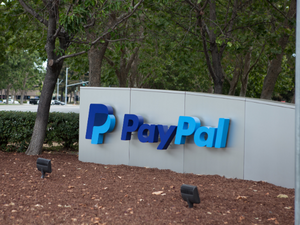PayPal Hack 35000 Accounts Compromised in Credential Stuffing Attack
Posted By Remote Techs On 14-March-2023

As a technology enthusiast, I have always been fascinated by the advancements that have been made in the world of e-commerce. With the advent of PayPal, making online transactions has become easier and more secure than ever before. However, recently there has been news about a major security breach in which 35,000 PayPal accounts were compromised in a credential stuffing attack.
As a member of the tech industry, I believe it is my responsibility to educate others about the dangers of such attacks and what can be done to prevent them. Credential stuffing is a type of cyber-attack in which hackers obtain usernames and passwords from one platform and use them to try to log in to another. In this case, the attackers obtained credentials from a different data breach and used them to try to log in to PayPal accounts.
Unfortunately, many people use the same password for multiple accounts, and this is precisely what makes credential stuffing so dangerous. If a hacker gains access to a user’s login credentials on one platform, they can use it to access other accounts with the same username and password. This is why it is essential to use different passwords for different accounts and enable two-factor authentication wherever possible.
PayPal has assured its users that no financial information was compromised in the attack. However, the breach did expose personal information such as names, addresses, and email addresses. This is still a significant breach of privacy, and it highlights the importance of strong cybersecurity measures.
Contact Remote Techs For IT Support Los Angeles Today
We provide comprehensive, tailored solutions ensuring smooth and secure operations. Trust our expertise to empower your business for growth and resilience.
Contact UsAs a company that provides remote tech support services, we at Remote Techs are committed to helping our clients protect their online accounts from such attacks. Here are some tips that we recommend to our clients to stay safe:
- Use a strong and unique password for each account.
- Enable two-factor authentication wherever possible.
- Regularly check your account for any suspicious activity.
- Never share your login credentials with anyone.
- Keep your software and operating systems up-to-date to ensure that you have the latest security patches.
By following these simple steps, you can significantly reduce the risk of your accounts being compromised. We also recommend that users monitor their accounts regularly and report any suspicious activity to the appropriate authorities.
In conclusion, the recent PayPal hack serves as a stark reminder of the importance of strong cybersecurity measures. As technology continues to advance, it is more important than ever to stay vigilant and take steps to protect our online accounts.